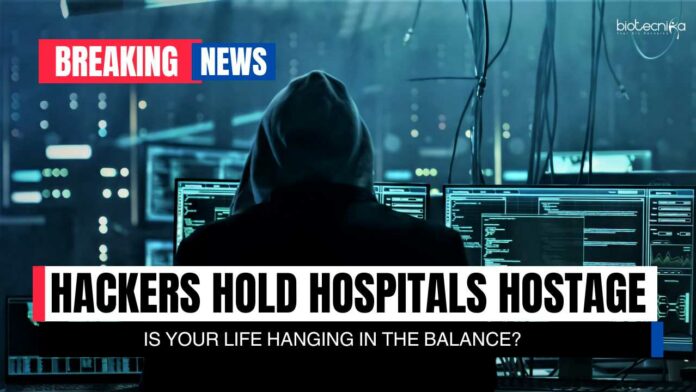Hackers Hold Hospitals Hostage: Is Your Life Hanging in the Balance?
Alia was rushed into the emergency room for life-saving surgery, but as doctors were about to treat her, the unimaginable happened: the hospital system crashed. All the files vanished, vital monitors died, and the whole hospital was on a rampage. Gone are the days when hospitals were a safe place; in 2024, hospitals became breeding beds for cybercriminals.
The nerve-chilling revelation made by Sophos, a global leader in innovative security solutions for defeating cyberattacks, in their report, “The State of Ransomware in Healthcare 2024 revealed that the rate of ransomware attacks against healthcare organizations has reached a four-year high since 2021. 67% of healthcare organizations were paralyzed by ransomware attacks in the past year, up from 60% in 2023.
Do you know the shocking truth? While the other sectors are seeing a drop in these attacks, the healthcare sector finds itself an easy target for these attackers. 80% of the hospitals took more than a week to recover, while the other 37% of hospitals took over a month to rebound. This leads to delayed care for the patients, inaccessible records, and organizations ready to collapse in a blink.
Adding to this is the financial burden, making hospitals bleed like never before, with an average recovery cost of $2.57 million per attack, up from $2.2 million just last year. These cybercriminals were paid more than the original ransom amount by 57% hospitals. With each passing day, these attackers are getting bolder, and now they are targeting the backup of the hospital, causing 95% of healthcare organizations to be hit by ransomware in the past year.
Ransomware is not turning into a war that healthcare is completely losing. John Shier, field CTO, Sophos hits the nail on the head with the statement, “While we’ve seen the rate of ransomware attacks reach a kind of “homeostasis” or even declining across industries, attacks against healthcare organizations continue to intensify, both in number and scope. The highly sensitive nature of healthcare information and need for accessibility will always place a bullseye on the healthcare industry from cybercriminals. Unfortunately, cybercriminals have learned that few healthcare organizations are prepared to respond to these attacks, which has been demonstrated by increasingly longer recovery times. These attacks can have immense ripple effects, as we’ve seen this year, with major ransomware attacks impacting the healthcare industry and impacting patient care. To combat these determined adversaries, healthcare organizations must adopt a more proactive, human-led approach to threat detection and response, combining advanced technology with continuous monitoring to stay ahead of attackers.”
The latest report from Sophos paints the real-world ransomware in healthcare. Letting us explore the journey from the roots. The reports brief us about the victims’ journeys in 402 healthcare organizations, from attack rate and root cause to operational impact and business outcomes. While hospitals arm themselves with the latest technology to tackle these cybercriminals before it’s too late. The government should work on making a policy that helps the healthcare industry overcome this problem, which is hanging millions of lives in the middle of attacks.
Hackers Hold Hospitals Hostage: Is Your Life Hanging in the Balance?























